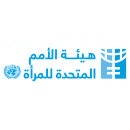Expert - study on women's economic rights in national laws..
National expert to conduct a study on women's economic rights in national laws and legislations and Sharia Law :
Background
UN Women, grounded in the vision of equality enshrined in the Charter of the United Nations, works for the elimination of discrimination against women and girls; the empowerment of women; and the achievement of equality between women and men as partners and beneficiaries of development, human rights, humanitarian action and peace and security. Placing women’s rights at the center of all its efforts, UN Women will lead and coordinate United Nations system efforts to ensure that commitments on gender equality and gender mainstreaming translate into action throughout the world. It will provide strong and coherent leadership in support of Member States’ priorities and efforts, building effective partnerships with civil society and other relevant actors.
UN Women plays an innovative and catalytic role in the State of Palestine since its inception in 1997. UN Women Palestine Office focuses its activities on one overarching goal, namely, to support the implementation at the national level of existing international commitments to advance gender equality in line with the national priorities. In support of this goal, and thoroughly taking into consideration the specificities of the Palestinian context, UN Women concentrates its efforts and interventions towards the realization of following strategic goals: Mainstreaming gender in governance, peace and security; Supporting women's economic security and rights; and Promoting women’s rights and protection against violence.
Women in the Arab region, including Palestine, have not yet reached full equality and enjoyment of their economic rights due to different structural barriers and challenges, mainly the stereotypical social norms and attitudes towards their traditional roles at home and within the society. This is also reflected in women’s limited freedom due to the local legislations, including constitutions, the Personal Status Law and civil legislations that are still detracting women’s legal capacity and their independence, especially that the male power in the context of gender relations still rests on men’s privileged access to material resources and their ability to exercise authority over women, within the family and beyond.
Economic violence against women is one of the most significant and pertaining forms of violence against women in Palestine, as it prevents women from obtaining economic resources, and limits or prevents their access to economic assets and resources, within the families. To date, women have limited access to social and economic opportunities inside and outside the households, due to their social and economic marginalization, and the limited leadership and decision-making opportunities that are available to them.
To contribute to ensuring that women have access to economic opportunities and fulfil their rights inclusively, concrete and affirmative actions towards achieving gender equality and women’s full enjoyment of economic independence, in light of national laws and legislations, including the Sharia Law, need to be taken. This can be achieved through applying equality in the systems of rights and freedoms, including economic, social and cultural rights, as well as the actual enjoyment of women of their full potential and agency. This includes ensuring that women maintain the right to economic opportunities and resources, including inheritance and access to assets and land ownership, which contributes to their economic empowerment, promoting their status and reducing incidence of economic and social violence. This also includes the need to recognize and value of unpaid care and domestic work, especially that women perform seven times more unpaid care work than men in Palestine, and the promotion of the equitable sharing of household responsibilities among women and men in the family. Therefore, it is of paramount importance to undertake reforms to recognize women’s equal rights to economic resources, as well as access to ownership and control over property and inheritance, in accordance with national commitments on gender equality and women’s rights made by the state of Palestine in line with international human rights and women’s rights standards.
In line with UN Women’s strategic priority “increasing women’s income security, decent work and economic autonomy”, and within the framework of the regional programme “Promoting Productive Employment and Decent Work for Women” implemented jointly by UN Women and ILO in Palestine, Jordan and Egypt, with funding from the Government of Sweden (Sida), UN Women Palestine Country Office is seeking to recruit a national expert to conduct a study on women's economic rights in Palestine.
The main objective of the assignment is to conduct a study on women's economic rights in national laws and legislations, and Sharia Law. More specifically, the study aims to answer the following questions:
-How the international and national laws/legislations and regulations explain domestic labour and the value of women’s work and efforts inside the household, with an overview of related protection mechanisms?
-How women’s economic rights are reflected in existing legislations/laws and practice, especially in relation to inheritance, marriage, divorce, and child custody?
The study is expected to provide concrete and actionable relevant policy recommendations based on identified gaps and opportunities regarding women’s economic rights and, at the short and longer terms, at the family, household and community levels, for an equitable and full enjoyment of their rights inside the households, towards the obligations of the State of Palestine arising from its accession to international conventions.
The recommendations will be linked with the State of Palestine’s obligations arising from its accession to international conventions, specifically; the International Convention on the Elimination of all Forms of Discrimination against Women, the International Covenant on Economic and Social Rights, the Convention on the Rights of the Child and the Protocol to Prevent, Suppress and Punish Trafficking in Persons Especially Women and Children, supplementing the United Nations Convention against Transnational Organized Crime.
The study will also provide evidence to strengthen accountability towards enhancing women’s economic rights in the State of Palestine, in addition to promoting recognizing unpaid care work, and sharing household responsibilities within the family.
Duties and Responsibilities:
Under the overall guidance of the UN Women Special Representative in the State of Palestine, and the direct supervision of the Task Manager, the consultant will undertake the following duties and responsibilities:
- Develop a comprehensive workplan and inception report (including methodology) for the assignment with specific actions and timeline and tools.
- Conduct a literature review of locally, nationally and regionally produced data, analysis, and resources of relevance to the study, as a main reference, as well as a context analysis.
- Conduct a comprehensive data collection exercise, both qualitative and quantitative, through using several virtual and in-person tools (as needed), including, but not limited to, interviews, consultation workshops (at least two), focus groups (at least three) in different geographical locations.
- Develop a draft analytical study on women’s economic rights (between 30-40 pages) in English and Arabic.
- Support UN Women in setting up a Reference Group, comprising of key experts from relevant stakeholders for the review and validation of the study results and recommendations.
- Lead a validation session with experts and partners to present the key findings from the approved draft study and incorporating key inputs, feedback and recommendations from the workshop into the final version of the study.
- Finalize the draft study based on incorporating stakeholders’ feedback, in consultation with UN Women in English and Arabic.
جميع الحقوق محفوظة لموقع جوبس.
Competencies:
Core Values
- Respect for Diversity;
- Integrity;
- Professionalism
Core Competencies
- Awareness and Sensitivity Regarding Gender Issues;
- Accountability;
- Creative Problem Solving;
- Effective Communication;
- Inclusive Collaboration;
- Stakeholder Engagement;
- Leading by Example.
Please visit this link for more information on UN Women’s Core Values and Competencies: http://www.unwomen.org/-/media/headquarters/attachments/sections/about%20us/employment/un-women-employment-values-and-competencies-definitions-en.pdf
Functional Competencies:
- Strong knowledge of international norms and conventions, including on women economic security and rights and related instruments.
- Ability to liaise with a variety of stakeholders and partners;
- Strong analytical, dialogue, consultation and communication skills;
- Maturity, ability to take decisions under pressure and ability to deal with matters that are politically and culturally sensitive;
- Ability to work as a member of a team;
- Demonstrated experience in timely delivering of quality products, including knowledge products, and in contributing to complex processes within the women’s economic empowerment area of work;
- Demonstrated coordination, training, facilitation and presentation skills;
- Results oriented, flexible and problem-solving skills;
Required Skills and Experience:
Qualifications:
Education: Master’s degree or equivalent in law, gender, economics or other related fields.
Experience:
- At least 7 years of experience working on gender assessments , research and analyses on women’s rights, including women’s economic rights, in International Conventions, national laws and legislations, including the Shari’a Law;
- At least 2 previous assignments on analyzing the International Conventions, national laws and legislations, including the Shari’a Law with regards to women’s economic rights in the Arab region, including Palestine;
- At least five years of experience in policy support and developing policy papers/briefs focusing on women’s rights;
- Previous experience working with the UN, national and international institutions is an asset;
Language Requirements: Professional proficiency level Arabic and English languages
Evaluation Criteria:
This SSA modality is governed by UN Women General Terms and Conditions. UN Women will only be able to respond to applicants who meet the minimum requirements.
Candidates should clearly indicate how they meet the above-mentioned criteria in their applications.
The following documents should be submitted as part of the application. Please make sure you have provided all requested materials:
- UN Women P11 including experience in similar assignments; the P11 form can be downloaded at http://www.unwomen.org/about-us/employment, a signed copy should be submitted;
- At least two samples of previous tools, research, analyses, assessments, strategies, or training materials related to private sector development, women’s economic empowerment and gender equality.
Note: Kindly note that the system will only allow one attachment. Please upload as one attachment of the documents as mentioned above online through this website
Candidates should have the ability to quickly submit degree certificates, medical certification (of good health) expression of Interest (EoI).
Evaluation of applicants:
Candidates will be evaluated using a cumulative analysis method taking into consideration the combination of the applicants’ qualifications mentioned above, and a financial proposal. A contract will be awarded to the individual consultant whose offer receives the highest score out of below defined technical and financial criteria. Only candidates obtaining a minimum of 50 points in the technical evaluation will be considered for financial evaluation.
Technical Evaluation (70%) – max. 70 points:
Education:
Master’s degree or equivalent in law, gender or other related fields. (max 10 points)
Experience:
- At least 7 years of experience working on gender assessments , researches and analyses on women’s rights, including women’s economic rights, in International Conventions, national laws and legislations, including the Shari’a Law (max 20 points)
- At least 2 previous assignments on analyzing the International Conventions, national laws and legislations, including the Shari’a Law with regards to women’s economic rights in the Arab region, including Palestine; (max 15 points)
- At least five years of experience in policy support and developing policy papers/briefs focusing on women’s rights. (Max 10 points).
- Previous experience working with the UN, national and international institutions is an asset. (max 5 points)
- Two samples of previous tools, research, analysis, a related to women’s economic empowerment and gender equality and women’s economic rights.. (max 10 points)
Financial Evaluation (30%) – max. 30 points.
The maximum number of points assigned to the financial proposal is allocated to the lowest price proposal. All other price proposals receive points in inverse proportion. A suggested formula is as follows:
p = 30 (µ/z)
Using the following values:
p = points for the financial proposal being evaluated
µ = price of the lowest priced proposal
z = price of the proposal being evaluated
Only long-listed candidates will be contacted.
Financial proposal. The shortlisted candidate will be requested to submit a financial proposal. The financial proposal shall specify a total lump sum amount breaking down a daily professional fee, proposed number of working days and any related expenses, i.e. travel and communications expenses in USD.










